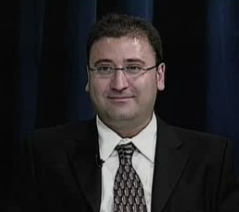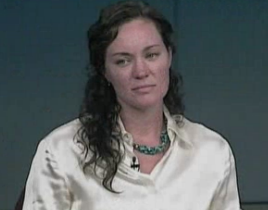
Improving Disaster Communication: The Role of Poison Centers in Public Health
Course Description:
Disaster and mass event situations can lead to uncertainty, fear, anxiety and stress. In these situations, community members need effective and timely information. Poison centers currently offer advice to the general public and the healthcare system on a wide range of poisonings and toxicological issues. They are available 24 hours a day, 7 days a week and are staffed by specialists who are trained and experienced in handling individuals in extremely stressful situations.
Even though poison centers assume a primary role in poisoning prevention and education, they additionally play a major role in disaster communication, surveillance and public health. Faculty will present the ways poison control has previously connected communities with vital public health information and the future possibilities of collaborations between public health and poison control. Recent incidents such as the SARS outbreak and spinach contamination with E. coli highlight the potential role of poison centers in enhancing the public health response to mass events and disasters.
This course will also discuss the potential for public health and poison centers to develop plans for communication and coordination during disasters and mass events. Through such strategic alliances, public health will be able to quickly provide poison centers with vital information, reliably refer the community
Note: This course was originally delivered as a satellite broadcast.
Target Audience
Academic Faculty/Staff, Federal Government Employees, State Government Employees, Local Government Employees, Non-Government Employees and Students
Learning Objectives
- List three reasons individuals require immediate poison control information during disasters and mass events
- Describe the history, organization and role of poison centers in poisoning prevention and education
- Illustrate the historical role of poison centers in disaster communication and public health response using specific examples
- List the many roles of public health during disasters and mass events
- Discuss potential future poison centers’ roles in disaster communication and public health response
Instructors:

Robert Geller, MD
Medical Director
Georgia Poison Center

Ziad N. Kazzi, MD, FAAEM
Assistant Professor of Emergency Medicine
Medical Toxicologist
George Poison Center

Valerie Yeager
Research Assistant
South Central Center for Public Health Preparedness
Available Credit
- 2.00 Participation/CETulane Professional and Continuing Education (PaCE) awards 2.00 hour(s) of credit for completing Improving Disaster Communication: The Role of Poison Centers in Public Health
Price
Required Hardware/software
System Settings
This course is designed to work most effectively if your computer and internet connection meet certain minimal requirements. This course can be accessed using a Windows 10 PC or a Mac with High Sierra1, Mojave, or Catalina. Pop-up blockers should be disabled when viewing the course. Internet Explorer 11 (for Windows 10), or the current version of Google Chrome, Mozilla Firefox, or Apple Safari (for Windows 10 and or Mac) is required. Many of our courses require Java and JavaScript enabled.
Links to External Websites
Links to websites outside this course will open in a new window or tab. Some browsers may minimize the course window. If this occurs, maximize the course window to return to the course.
Adobe Acrobat Reader (for desktops and laptops)
Adobe Acrobat Reader is required to access some documents in this course. If you need to download a free copy of Acrobat Reader, click here.
Internet Connection Speed
A minimum download speed of 1.5 Mbps is recommended for an optimal experience, which is commonly the speed associated with a basic DSL or a cellular/satellite connection. A faster connection, such as cable or fiber service, with further enhance your online experience. A Wi-Fi connection is generally acceptable, but it is dependent upon one of the two services mentioned above. You can check your internet connection speed at http://www.speedtest.net/.

 Facebook
Facebook X
X LinkedIn
LinkedIn Forward
Forward